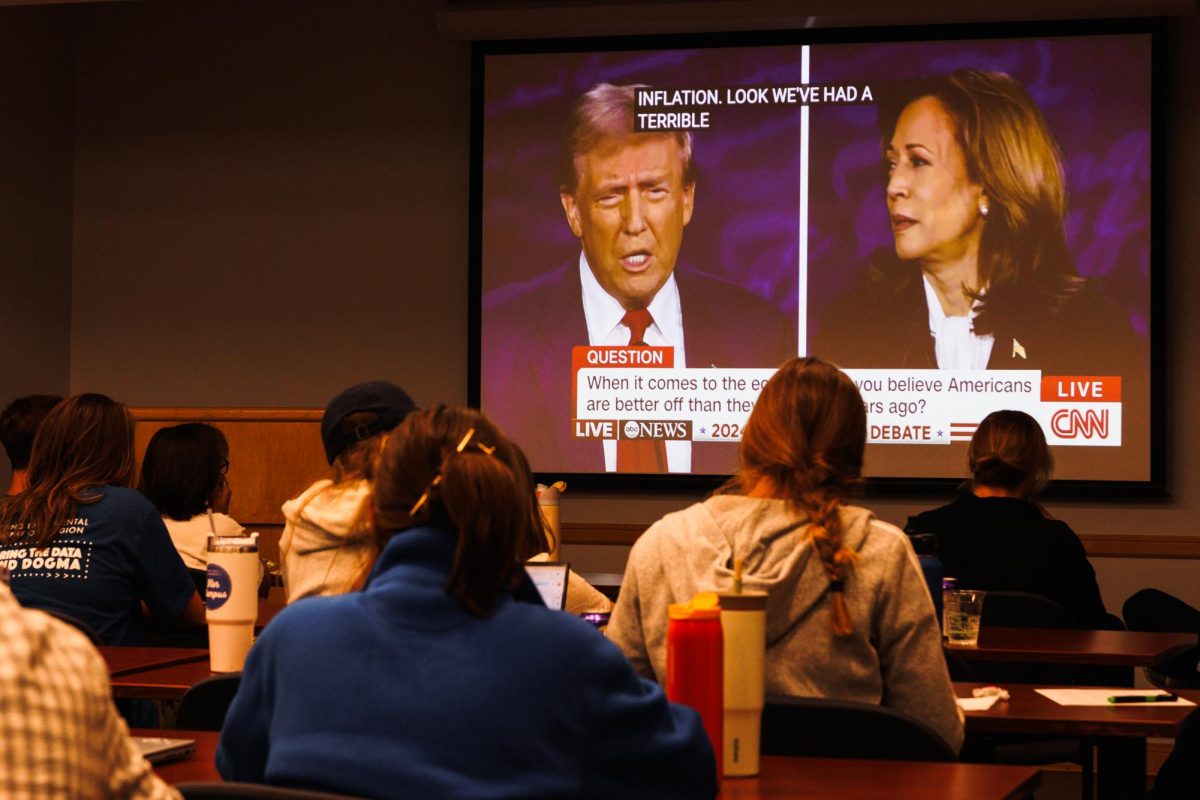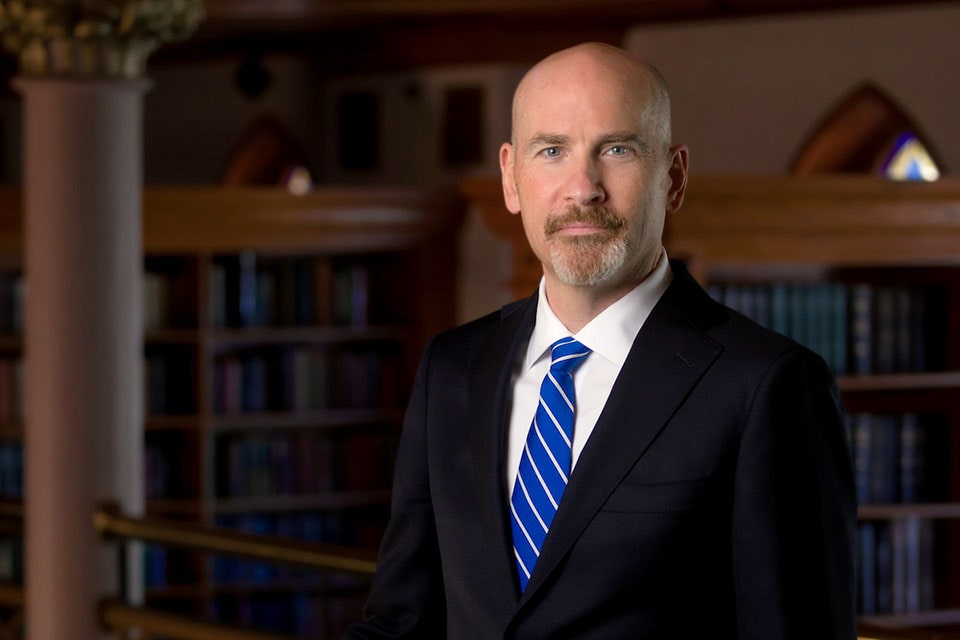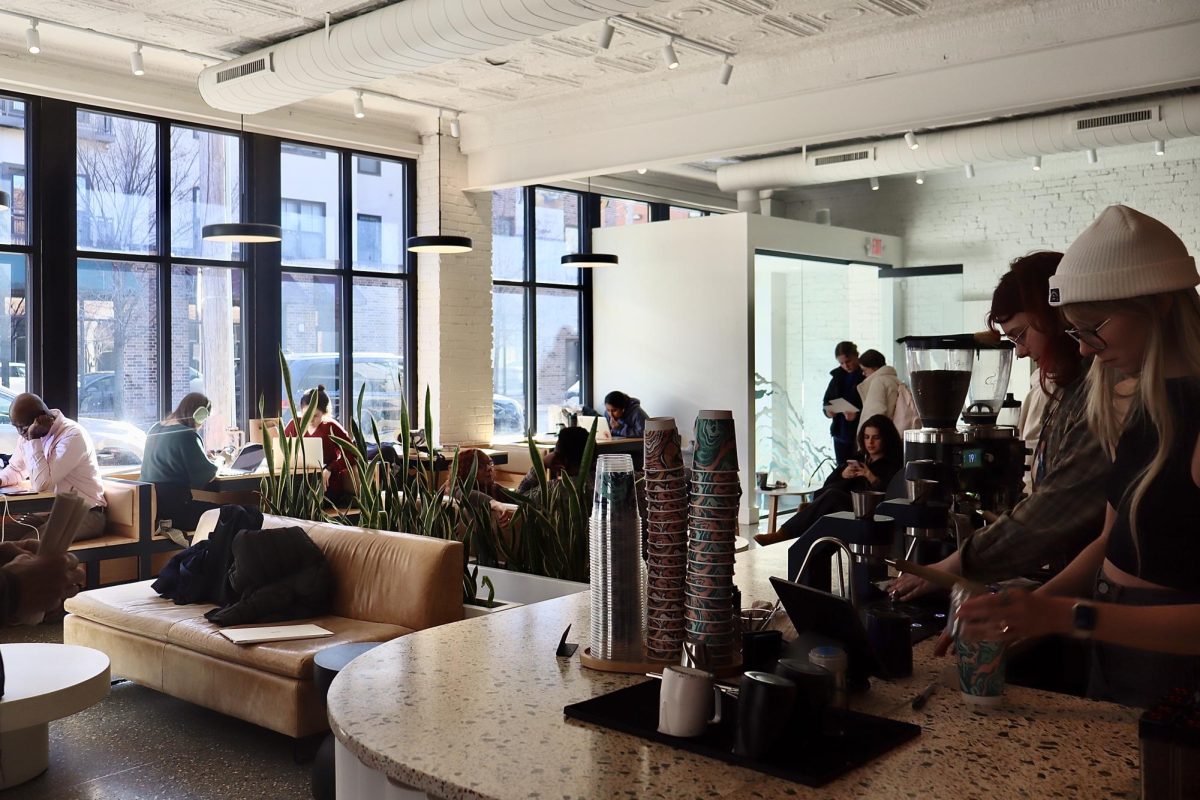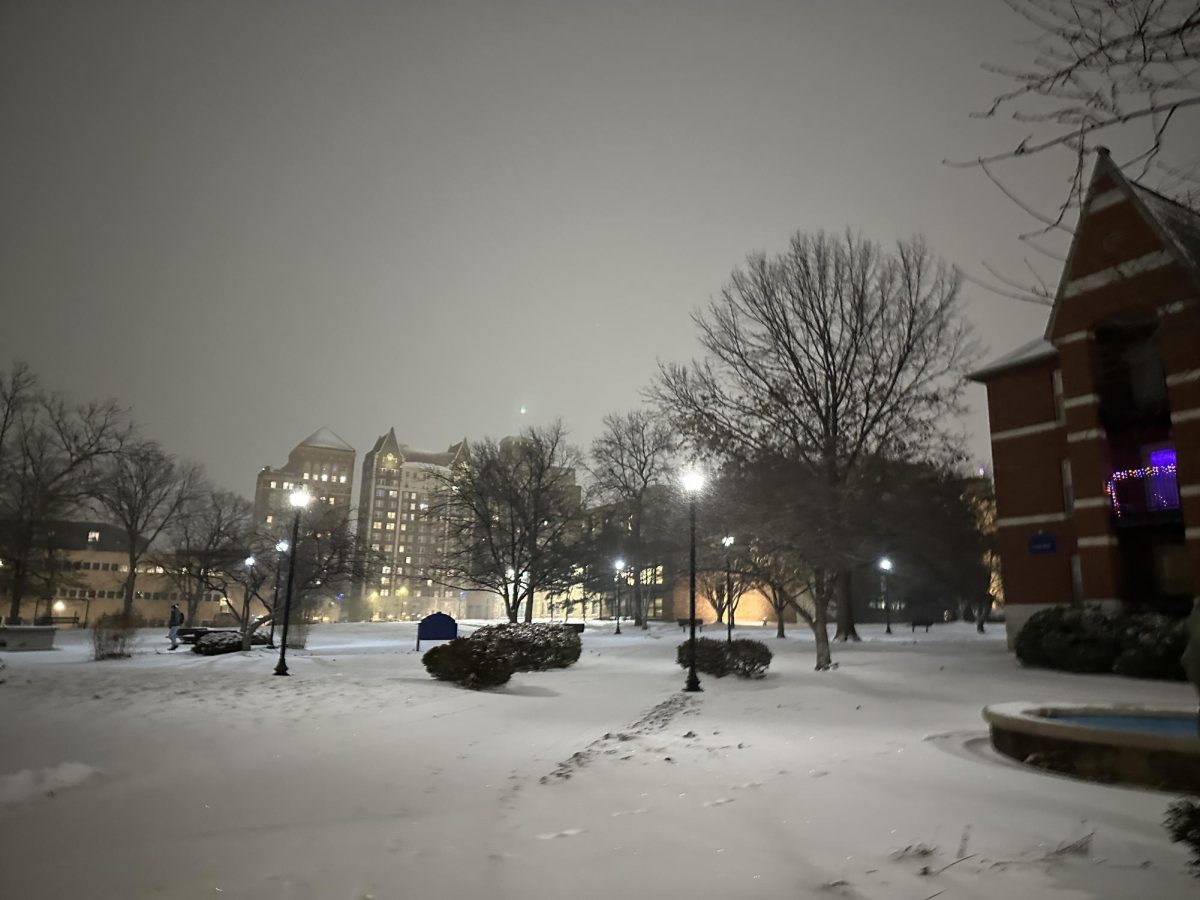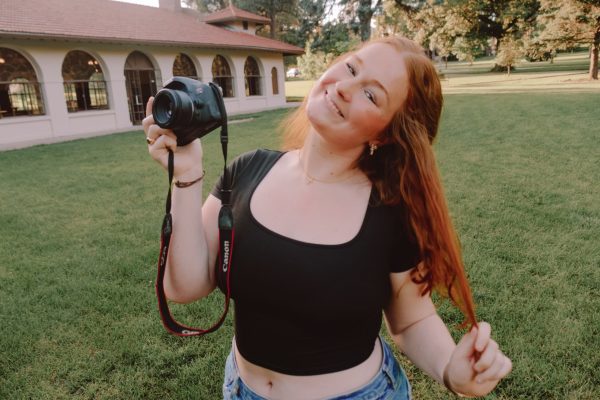Saint Louis University students watched as presidential candidates Donald Trump and Kamala Harris debated Sept. 10 for the first, and likely last time, ahead of the November election.
After President Joe Biden dropped out of the electoral race in July, Harris became the official Democratic nominee. This was a highly-anticipated debate and several student groups hosted campus watch parties Tuesday night.
Around 30 people gathered at Adorjan Hall for a watch party convened by the history honor society Phi Alpha Theta. The president of the society, Chloe Oliff, a senior studying history, English and German organized this event along with faculty advisor Enrique Dávila. Oliff wanted the event to allow students to approach the debate as historians.
“Instead of taking one side or the other, approaching it in a partisan way, we wanted to think about what we can bring to the debate as historians that we learned in our classes,” Oliff said.
This event featured commentary from history professors on what they look for while watching a debate and how they evaluate the candidates. They challenged viewers to think about how the candidates balanced global and national interests and how they related to the constitution and law.
Dávila, associate professor of history, explained that the main topic he was paying attention to in this debate was what terminology each candidate used to refer to different groups like “Hispanic,” “Latino” or “Latinx.”
“One of the things that we are trying to do here with Phi Alpha Theta is look at this [debate] as a historical document,” Dávila said. “One fun thing about watching the debates is that they change over time. The language that they use, the expressions people have — all that matters.”
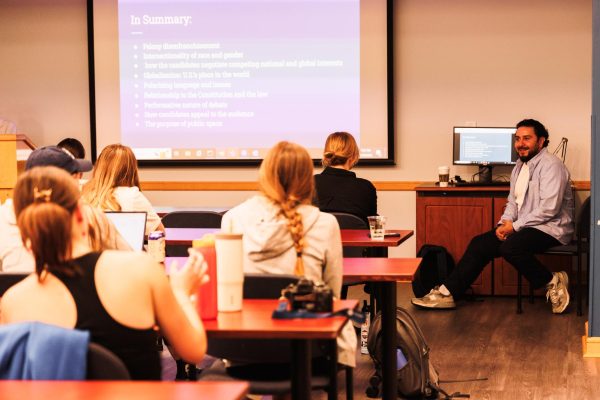
The Phi Alpha Theta watch party was open to all and was attended by non-history students like Olivia Blaskowitz, a freshman majoring in economics. Blaskowitz said she joined this event because she believes it is important for young voters to stay informed and realize that their vote matters too.
“I think it is very easy to focus on the past and what they have done,” Blaskowitz said. “Here is an opportunity for them to present what their future plans are and how they really use this opportunity to push the agenda is going to be important.”
At the Center for Social Action (CSA) watch party in the Spring Hall multipurpose room, there was a heavy focus on civic engagement with resources about voter registration, finding a polling place and ordering an absentee ballot. At each commercial break, members from the CSA went around asking if anyone needed help registering to vote.
Leah Sweetman, the director of community engaged learning at SLU, was one of the key organizers for this event. One of the main aspects of her job is voter engagement efforts on campus.
“We want to give students all of the opportunities so that they are informed voters every election cycle,” Sweetman said. “Students learn that we can have meaningful political dialogue that is civil and coming together as a SLU community we can discuss real policy issues.”
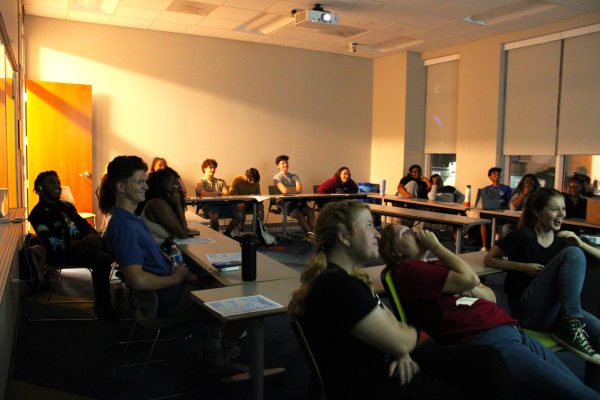
At a third watch party sponsored by the College Republicans Club, about 25 students ate pizza and watched the debate, with organizers stressing the importance of respectful conversation. This watch party was held in Davis-Shaughnessy Hall.
Michael Owolabi, a senior studying computer science, is a member of the Campus Republicans Club and a member of the U.S. Army who said he wants his next commander in chief to be someone he respects. He added that political party affiliation is not as important to him as someone who will benefit the country.
“If you are good for the job, you are good for the job, more people need to go by that,” Owolabi said. “People need to start ignoring these labels, right versus left, and just do what is best for the country. I am a Republican, but Democrats, if you give a good idea, I am following whatever is good for the country.”
Although this debate brought attention to candidates at the top of the ticket, that race is not the only one on the ballot this November. Sweetman wants more students to get involved in local politics as well.
“I hope that students don’t just think it is important to vote for the president during presidential elections,” Sweetman said. “They should take the time to get to know what else is on their ballot, [such as] amendments or propositions and other candidates [running] for statewide offices in the Senate and the House of Representatives.”




